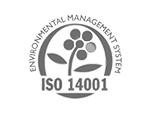In a world where sustainability has moved from buzzword to business essential, the transport industry finds itself at a critical crossroads. Green logistics isn’t just about slapping an eco-friendly label on trucks anymore—it’s reshaping how materials move across our planet. Whether you’re running a transport company facing tightening regulations, managing a supply chain under customer scrutiny, or simply curious about how your everyday deliveries might become more sustainable, understanding green logistics has never been more relevant. I’ve watched this transformation unfold across the industry, where environmental responsibility and operational efficiency now work hand-in-hand rather than against each other. Let’s explore how this green revolution is changing transport operations, cutting costs, and creating competitive advantages for companies willing to make the shift.
Understanding green logistics in today’s transport landscape
Green logistics represents a fundamental shift in how transport companies approach their operations, focusing on reducing environmental impact while maintaining business performance. It encompasses all activities within the transport chain that contribute to sustainability goals.
At its core, green logistics integrates environmental considerations into every aspect of transport operations. This includes vehicle selection, fuel choices, route optimization, load planning, and even warehouse management. For bulk material transport operators, this often means investing in cleaner vehicles, utilizing more efficient loading techniques, and carefully planning routes to minimize empty miles.
The concept has evolved significantly over the past decade, moving beyond simple compliance with regulations to become a competitive differentiator in the transport industry. Companies with robust green logistics programmes can demonstrate their environmental commitment to customers who increasingly factor sustainability into their purchasing decisions. You can learn more about how transport companies have evolved over time by exploring our company history.
Modern green logistics also leverages technology extensively, with advanced software for route optimization, real-time tracking systems, and analytics tools that identify opportunities for emissions reduction throughout operations.
How does green logistics reduce environmental impact in transport operations?
Green logistics reduces environmental impact through multiple interconnected strategies that collectively minimize the ecological footprint of transport operations. The primary mechanisms focus on emissions reduction, resource optimization, and waste minimization.
Fuel efficiency improvements represent one of the most effective approaches. By upgrading to modern vehicles with lower emissions profiles, implementing driver training programmes for eco-driving techniques, and utilizing alternative fuels like biofuels or electric power, transport operations can significantly reduce their carbon emissions. For companies hauling powdered or granular materials, aerodynamic improvements to specialized vehicles can yield substantial fuel savings.
Route optimization plays an equally important role by:
- Minimizing distance travelled through advanced planning
- Reducing idle time and congestion exposure
- Consolidating shipments to maximize vehicle utilization
- Balancing backhauls to eliminate empty returns
Additionally, green logistics embraces circular economy principles through packaging reuse, maintenance practices that extend vehicle lifespan, and waste reduction throughout the transport chain. These approaches collectively reduce resource consumption while maintaining operational effectiveness.
What are the business benefits of implementing green logistics?
Implementing green logistics delivers tangible business advantages beyond environmental benefits, making it a commercially sound strategy for modern transport companies. These benefits directly impact both operational performance and market positioning.
Cost reduction is often the most immediate benefit. Fuel-efficient vehicles and optimized routes directly lower operating expenses, while preventative maintenance programmes reduce vehicle downtime and extend asset lifespans. For specialized transport operations handling bulk materials, even small efficiency improvements can yield significant savings when multiplied across a fleet.
Market differentiation represents another valuable advantage. As more customers prioritize sustainability in their supply chains, transport companies with proven green credentials gain competitive advantage in tender processes. This environmental commitment often translates to stronger customer relationships and higher retention rates.
Regulatory compliance becomes simpler with proactive green logistics implementation. As environmental regulations continue to tighten across Europe, companies with established sustainability programmes face fewer adjustment costs and compliance risks.
Employee engagement also improves, as staff increasingly value working for environmentally responsible organizations with forward-thinking approaches to business challenges.
How can transport companies transition to greener operations?
Transport companies can successfully transition to greener operations through a structured approach that balances immediate improvements with long-term transformation. This transition begins with assessment and progresses through implementation and continuous improvement.
Start with a comprehensive environmental audit to establish baseline performance metrics. This assessment should analyze current fuel consumption, emissions profiles, route efficiency, and waste management practices. For specialized transport operations, this might include examining loading processes and equipment specific to bulk materials handling.
Develop a phased implementation plan that prioritizes high-impact initiatives with manageable investment requirements. Effective starting points often include:
- Driver training programmes for fuel-efficient driving techniques
- Route optimization software implementation
- Preventative maintenance schedules to improve vehicle efficiency
- Gradual fleet upgrades to cleaner vehicle technologies
Leverage available support resources, including industry associations, government incentives, and technological partners. Many transport companies find value in collaborating with sustainability consultants who understand sector-specific challenges.
Finally, implement robust measurement systems to track progress, celebrate successes, and identify further improvement opportunities. This data-driven approach ensures the transition delivers tangible environmental and business benefits.
What does the future hold for green logistics in transport?
The future of green logistics promises accelerated innovation and deeper integration into transport operations, driven by technological advances, market demands, and regulatory developments. Several key trends will shape this evolution.
Alternative power technologies will continue advancing, with electric vehicles becoming increasingly viable for more transport applications. Hydrogen fuel cells show particular promise for heavy-duty transport, potentially offering zero-emission operations with range capabilities suitable for long-haul routes. For specialized transport of powdered and granular materials, these technologies will increasingly be adapted to meet the unique requirements of bulk carriers.
Digital transformation will further enhance green logistics through data-driven optimization. Advanced analytics, artificial intelligence, and Internet of Things connectivity will enable real-time adjustments to maximize efficiency and minimize environmental impact. These technologies will improve not just routing but also maintenance timing, loading practices, and energy management.
Circular economy principles will become more central to transport operations, with greater focus on equipment longevity, component reuse, and collaborative resource sharing.
Ultimately, we at Powder-Trans believe green logistics will transition from being a specialized focus area to becoming simply how transport is done—with sustainability integrated into every operational decision rather than treated as a separate consideration.






